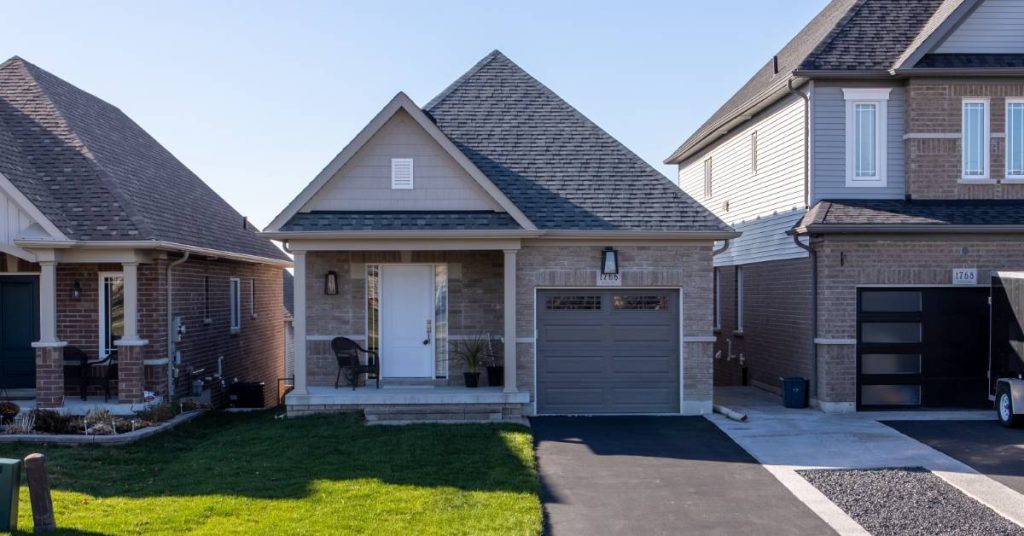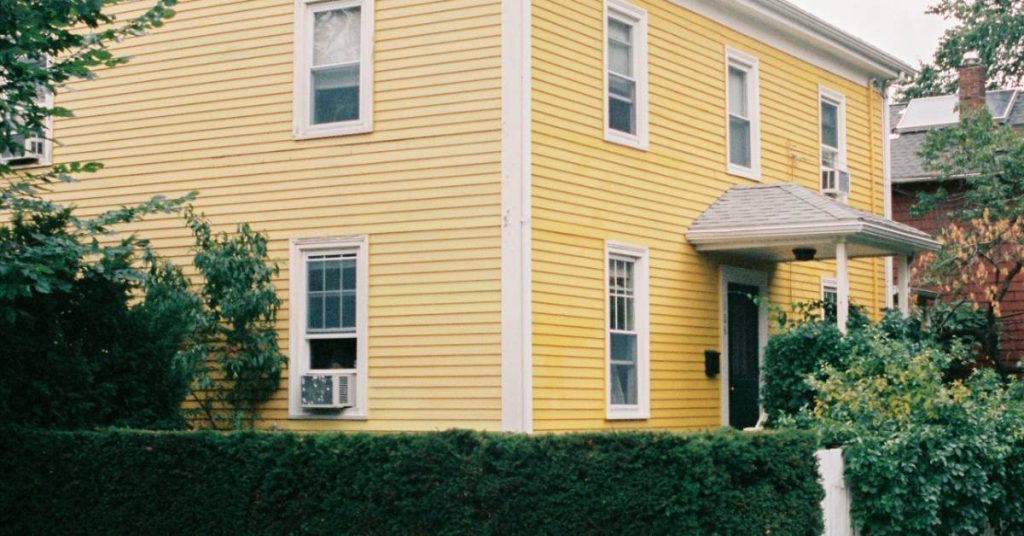One of the most surprising aspects of homebuying for first-timers is closing costs.
Lenders advertise the required down payment, but forget to tell you that there’s another 2-5% of the home’s price in closing costs on top of the down payment.
So instead of needing the standard 2.25% down payment for Section 184 Loans, you actually have to come up with 5-8% of the home’s price in total.
To help with this situation, here is a list of what you can expect to pay in Section 184 Loan closing costs, and how to cover these costs with assistance and credits.
Get a Section 184 closing cost quote from a lender.
In this article:
- Example closing costs and cash to close
- Lender closing costs
- Third-party closing costs
- Costs specific to Section 184 Loans
- Prepaid items
- Down payment and earnest money
- Closing cost assistance programs
Example closing costs and cash to close
| Section 184 Loan Closing Costs Loan: $250,000 | Amount |
| Lender/3rd party fees | |
| Origination fee (1%) | $2,500 |
| Lender’s processing fee | $500 |
| Appraisal | $500 |
| Credit report | $75 |
| Title | $500 |
| Escrow | $450 |
| Flood certification | $30 |
| Recording | $100 |
| Prepaid items | |
| 6 months property taxes | $1,500 |
| 14 months homeowners insurance | $840 |
| Prepaid interest | $500 |
| Total closing costs and prepaids | $7,495 |
| Down payment (2.25%) | $5,625 |
| Cash needed to close before assistance | $13,120 |
| Down payment/closing cost assistance | |
| Earnest money | -$1,000 |
| Seller credit | -$3,500 |
| Tribal or other assistance | -$7,500 |
| Lender credit | -$500 |
| Cash needed to close | $620 |
In this example transaction, the buyer tapped into nearly all the assistance that is available to them. As a result, they purchased a home for just $1,620 out-of-pocket ($1,000 in earnest money and $620 not covered by other sources.)
With that in mind, let’s look at each individual fee.
Start your Section 184 loan with a reputable lender here.
Lender fees
Loan origination fee or broker fee | 0-1% of the loan amount
This is the fee that Section 184 Loan lenders or brokers charge to do the loan. It creates profit for the lender so they can stay in business and keep offering the program.
Lock-in, application, processing, or underwriting fees | $500-$1000
You may see additional lender fees. They go toward paying for the services that the lender provides. For instance, a processing fee helps pay for the loan processor to organize the paperwork and do administrative tasks. Some lenders don’t charge any of these fees, but charge an origination fee instead. When comparing lenders, add up all lender fees to see which one is the best value.
Discount points | 0-2%+ of the loan amount
Discount points go directly toward lowering the rate. It is not part of the lender’s profit and they are usually optional. Each discount point equals 1% of the loan amount. For instance, you may receive a quote at 6.5% with no discount points or 6% with 1 discount point. Decide whether you’d like lower upfront costs but a slightly higher payment, or higher costs for a lower payment.
Third-party closing costs
You pay third-party fees to companies that provide services related to your home loan. Most fees are not paid at the time of service, though. You pay them all at closing along with your down payment. All funds go to the escrow company, which then distributes accurate funds to all parties.
Your fee may be much higher or lower than estimated below depending on your area’s cost of living, the home’s price, and other factors.
Appraisal | $300-$1,000+
The appraisal determines the value of the home. Fees vary widely based on the home’s size, features, and whether there are recent similar sales in the area. The lender may collect this fee upfront in case the loan doesn’t close.
Credit report | $75-100
The lender pulls a credit report to verify your credit history and score.
Title report/Title insurance | $300-$1000+
This fee doesn’t apply if you’re buying on reservation land. Off-reservation, you will need a history of the property’s ownership, plus insurance in case anyone claims they own the property and can prove it in court. The fee varies widely depending on home price. If you are buying on reservation land, you will receive a Title Status Report (TSR) from the BIA directly, which does not cost you anything.
Attorney Fee | $500+
Some states require an attorney to be involved in real estate transactions. Shop around for a low-priced attorney that is experienced in real estate.
Escrow | $500
The escrow company collects and distributes all funds to all parties at the end of the transaction. For instance, it collects your down payment funds plus the lender’s funds and pays them to the home seller. It also pays third parties like the county recording office, title company, and surveyor. The escrow company also manages final loan document signing.
Flood cert | $30
Lenders require a certification of whether the property is in a FEMA flood zone. If it is, the lender will require flood insurance. Most properties are not in a flood zone.
Survey | $400
This is not a common fee off-reservation. However, you may need a survey to determine property lines on reservation land since your Tribe may require one to issue a lease.
Home Inspection | $400
Lenders don’t typically require a home inspection, but it’s a good idea to get one. You will pay for it on your own, not through closing of the loan. This report tells you major and minor issues with the home. Typically, you can back out of the transaction if there’s a large defect with the home, within the amount of time detailed in your purchase contract.
Additional inspections | $300+
If the appraiser points out a possible defect in the home, you may need an additional inspection. For instance, a mossy roof may trigger a roof inspection. You can usually pay additional inspection fees at closing.
Recording | $100
The county charges this fee to record the legal ownership change in its property records.
Loan-specific fees
Section 184 funding fee | 1.0% of the loan amount
These loans require a “funding fee,” which is an upfront fee that goes toward sustaining the program. It is not a fee that the lender keeps. You can roll it into the loan amount to avoid paying it out-of-pocket. This fee is similar to FHA’s upfront mortgage insurance premium, but is less expensive.
Related: Section 184 Loan Calculator
Prepaid items
Prepaid items are costs you would pay anyway, but are collected at closing. Some items like property taxes can jeopardize the loan if unpaid, so lenders collect them upfront to protect their interests.
Property Taxes | $500-$5,000+
If purchasing a home off-reservation, you will pay property taxes to the county. The lender collects anywhere from 3-9 months of taxes at closing. This can add up to thousands of dollars and is likely your biggest prepaid item.
Homeowners insurance | $500-$1000+
The lender will collect about 14 months of homeowner’s insurance at closing. So a $60-per-month policy would add $840 to your closing costs.
Prepaid interest | $500+
The amount of interest from the closing date to the end of the month. If you close on the 15th, for instance, you’ll prepay the interest due for the rest of the month, or about half a month’s interest.
Flood insurance | $500+
This is due only if the property is in a flood zone. For such properties, you’ll pay a full year’s flood insurance premium at closing.
HOA dues and fees | $200+
If the property is located within a homeowner’s association, sometimes the HOA requires a few months’ dues be paid at closing. The HOA may also charge a fee to be registered as a new owner in the community.
Down payment | 2.25% of the home price
Your down payment isn’t really a fee because it is applied to the home’s cost. Section 184 loans require a 2.25% down payment for loans over $50,000 and just 1.25% for loans under $50,000.
Earnest money | $500 to 3%+ of the home price
Earnest money isn’t a fee. It is applied toward your down payment and closing costs at time of closing. The purpose of earnest money is to show the seller that you are “earnest” or serious about buying the house. Without earnest money, the buyer could walk away for no reason with no penalty. Earnest money assures the seller that the transaction will go through.
How to pay Section 184 closing costs without your own money
By now you may be worried that you’ll never be able to buy a house with all these fees on top of the down payment.
Luckily, there are ways to cover you closing costs without your own funds.
Closing cost assistance
You may have heard of down payment assistance. Often, these same programs can cover your closing costs as well.
Down payment and closing costs assistance is allowed, according to Section 184 Loan requirements. Assistance is available from state, county, and city housing agencies all over the U.S. Furthermore, many Tribes offer assistance.
Visit your Tribe’s housing website or office, or call your Tribe to see what assistance is available. For state, county, or city assistance, just Google “down payment assistance in [your city, state or county]”.
Seller contributions
If a seller is motivated, they may offer closing cost assistance. They may not advertise it in the listing, but you can always ask for assistance in negotiations. Ask your real estate agent to request assistance and how much they think the lender might give. It’s not uncommon for sellers to contribute thousands of dollars toward the buyer’s closing costs just to get the deal done.
Builder credit
If you’re buying a new construction home, the builder may agree to cover some of your closing costs for you.
Lender credit
Lenders won’t advertise this, but they are allowed to issue you a closing cost credit. This is when they use a portion of their profit to pay for some of your closing costs. Don’t expect a huge amount, but it’s worth asking your lender about.
Realtor credit
Your real estate agent can also issue a credit from their commission funds. For instance, a common commission is 3% of the home’s price, paid by the seller. Negotiate with the Realtor to give you a part of this commission to help with closing costs.
Section 184 Loan closing costs FAQ
Closing costs for the Section 184 loan can range from 2-5% of the home price. There are many assistance programs that help you pay closing costs, such as from Tribal, city, state, or county agencies, a Realtor or lender credit, and/or seller contributions.
You cannot finance closing costs into a Section 184 loan, but you can pay for closing costs using assistance funds.
You must be an enrolled member of a federally-recognized Tribe that is approved for the Section 184 loan program. Then, meet criteria for credit, income, employment, and other requirements. You can buy a home on or off Tribal lands.
Section 184 closing costs: don’t let them scare you
It’s time to buy your home, so don’t let closing costs discourage you from applying. You might be surprised at the assistance available.
Check your homebuying eligibility with a Section 184 lender and become a homeowner sooner than you thought possible.




